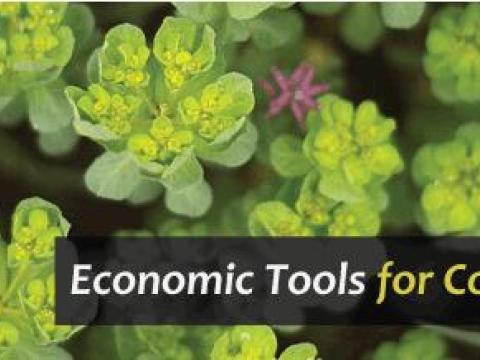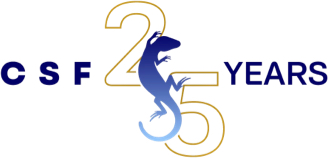CSF's flagship US course draws diverse crowd
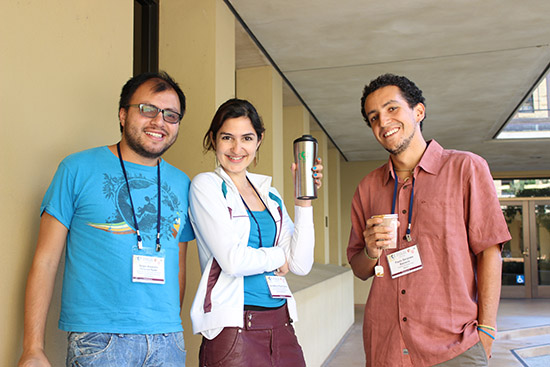
During the two-week training, instructors from CSF, Oregon State University, the University of Brasilia, and Cambridge Resources International led an intensive schedule of lectures, exercises, and games to give participants insight into the economic drivers of environmental problems and the economic and policy tools that can lead to effective solutions. Topics included Microeconomics, Natural Resource Economics, Environmental Policy and Valuation, and Cost-Benefit Analysis. Each participant came away with a clear understanding of how these topics relate to their work in conservation, policy, and analysis.

Specifically, participants gained:
• An essential foundation in basic economic concepts and language.
• Insight into the drivers of environmental problems and the market and institutional failures that lead to environmental degradation.
• An introduction to ecosystem services valuation techniques to better integrate environmental values into decision-making.
• Skills to evaluate the costs and benefits of natural resource management and development decisions, and the ability to identify the best opportunities to apply economics to conservation.
• The ability to identify tradeoffs and formulate more effective solutions and policies for conservation.
• Invaluable practice using communication and negotiation techniques to articulate environmental values in a language that communities, businesses, and governments can understand.
• A close network with fellow conservation professionals through the unique CSF Residence Program on the Stanford campus.

“From a conservation practitioner perspective, the course has been insightful and provided me the necessary and critical tools to sharpen my communication for the conservation of wetlands in Eastern Africa and Kenya, and defend my position that environmental problems are human problems.”
–Leonard Akwany, Wetlands International, Kenya

“The CSF international course is an invaluable experience. I was able to learn about different tools and solutions to the environmental problems we have been facing in Brazil in the last decade. As an environmental analyst, I’m planning to work hard to improve my knowledge in this area, in order to find the best technical solutions and entry points to improve the integration of biodiversity and ecosystem services into the planning and development process.”
–Luana Duarte, Brazilian Ministry of the Environment, Brazil
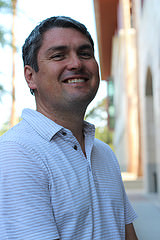
“As a project manager/practitioner and scholar of conservation issues in the Amazon, the course was extremely useful to disentangle and advance my knowledge on the economic aspects of policies and projects promoted in the region. Understanding the language and the logic of the design of these projects and policies is becoming a key skill to be able to participate in the discussion about the future Amazonian landscape.”
–Percy Summers, Conservation International, Peru
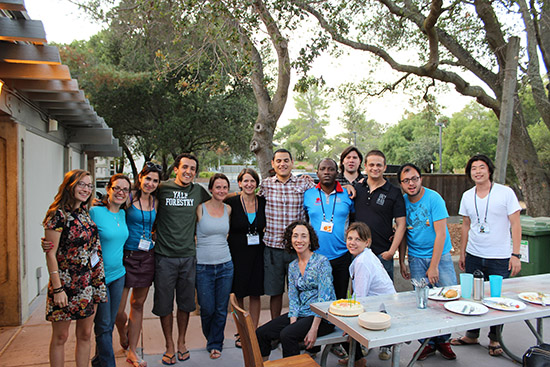
Participants live, work, and eat together in a house on the beautiful Stanford campus for the duration of the course. The residential aspect of the program provides ample opportunity for making lifelong connections with like-minded professionals from around the world. CSF also hosted a variety of lively guest speakers from Stanford and UC Berkeley, and coordinated a field trip to the beautiful Jasper Ridge Biological Preserve where participants experienced the diversity of California’s microclimates. Weekend adventures to San Francisco and Yosemite rounded out the experience.
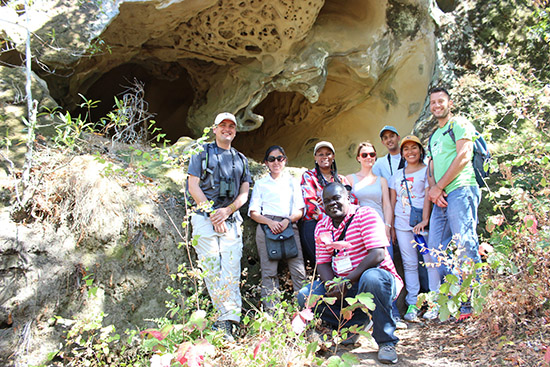

“The Economic Tools for Conservation training course has been an amazing human and professional experience. It changed my approach toward environmental issues, teaching me how to focus on positive arguments instead of normative and emotional considerations. The materials and references provided to participants are very relevant, interesting, and high quality. Besides all of this, I had an amazing time with colleagues from all over the world. It is an experience that I would definitely repeat and that I would suggest to environmental professionals. I am sincerely grateful to CSF.”
–Roberta Ianna, Italian Ministry of the Environment, Italy

“The CSF course far exceeded my expectations. The depth of the material and quality of instruction, combined with the breadth of knowledge and experience brought to the table by the rest of the participants made for a really effective, inspiring, practical learning experience. The cross-cultural and interdisciplinary exposure made every topic so interesting. Oh, and we had a ton of fun while we were at it!”
–Joyce Wang, Wildlife Conservation Network, USA
Many thanks to our partners at the Stanford Woods Institute for the Environment and the Center for Conservation Biology for working with us to put on an excellent training!
- Log in to post comments

